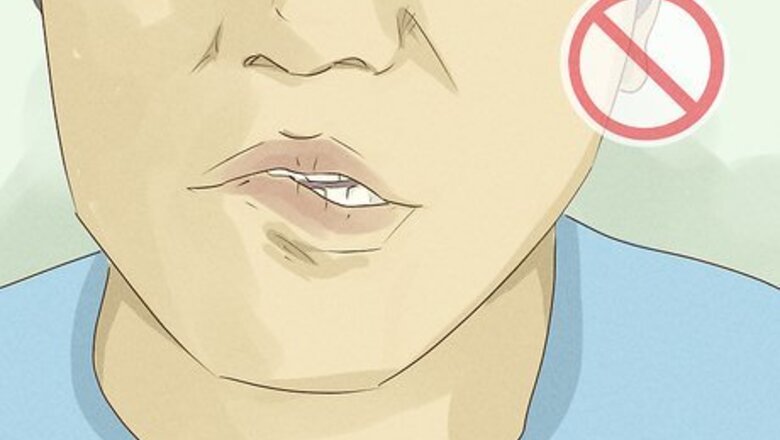
views
X
Trustworthy Source
American Academy of Dermatology
Professional organization made of over 20,000 certified dermatologists
Go to source
Stop biting, licking, or picking at your lips.
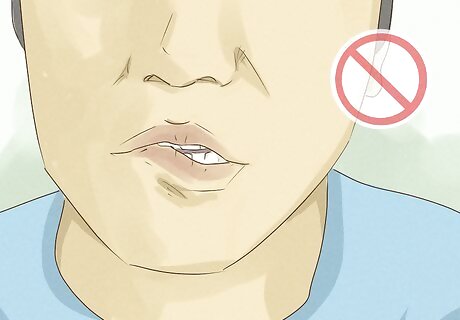
Continually messing with your lips will only make them worse. Additionally, if you're picking at your lips with dirty fingers you run the risk of introducing bacteria, which can cause an infection. The saliva you introduce to your lips when you lick them can excessively dry out your lips, making it difficult for them to heal. Saliva might also contain bacteria that can infect your lips. As your lips are healing, they might tingle, which can make you want to touch them. Try to resist this urge as much as possible.
Apply a healing lip balm regularly.
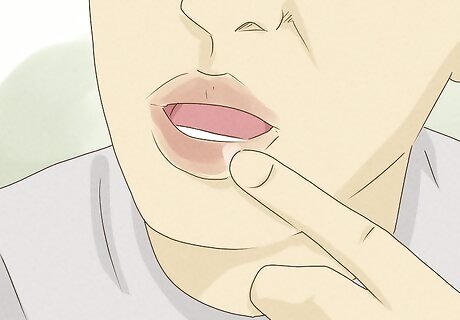
Balms keep your lips moist so they can heal. Keep your lips constantly moist with a lip balm that includes beeswax or petrolatum as one of its main ingredients. Shea butter or mineral oil also help moisturize and protect your lips. These lip balms are typically safe to apply as often as necessary to keep your lips moist. Keep a tube or pot in your pocket or with you at all times so you can apply lip balm whenever your lips start to feel dry. A simple petrolatum-based product like Vaseline can help keep your lips moist and promote faster healing. In addition to locking in moisture, there’s evidence that coconut oil can reduce inflammation and soothe pain. Try applying a coconut oil lip balm or pure coconut oil to your lips while they heal.Tip: If you try a lip balm that causes your lips to tingle, burn, or sting, that means it contains an ingredient that is irritating your lips. Causing further irritation to your lips will only worsen your problem.
Skip any lip products with irritating ingredients.
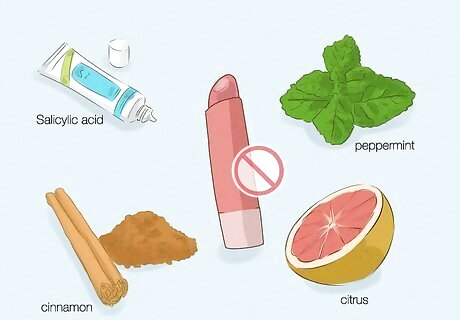
Fragrances and some flavors could cause more irritation. If you're trying to heal your lips, some products will do more damage than good. These products contain ingredients that will further irritate and inflame the skin on your lips. Ingredients to avoid include the following: Camphor Eucalyptus Fragrances Cinnamon, citrus, mint, or peppermint flavors Lanolin Menthol Salicylic acid
Wash your hands before applying balm with your fingers.
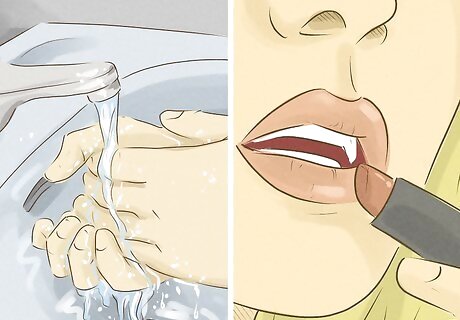
That way, you prevent any contamination from bacteria. Some lip balms come in tubes that you can roll up and apply to your lips without touching them. However, others come in small pots that you have to smooth on your lip with your fingers. Use warm, soapy water to wash your hands for at least 20 seconds. Thoroughly dry your hands before using the lip balm. You'll likely also want to wash your hands after applying the lip balm, to get the balm off of your finger.
Clean your lips twice a day.
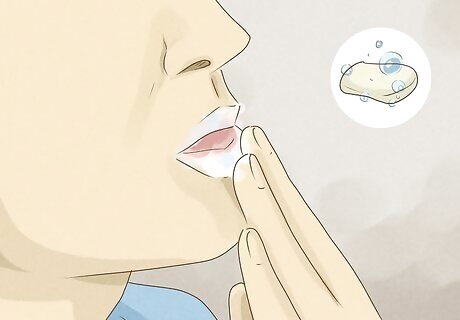
Prevent infections by washing your lips. When you have cuts or wounds on your lips, it’s important to keep them clean in order to promote healing. Gently wash the area with plain water or clean water and mild soap twice a day, then apply some Vaseline or a gentle balm to prevent drying. Always wash your hands with soap and water before touching your lips to prevent contamination.
Soothe your lips with a cool compress.
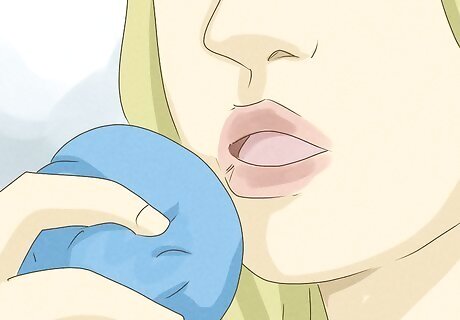
A cool compress can help ease pain and swelling if you’ve just bitten your lip. Wrap an ice cube in a thin washcloth or soak a clean cloth in cold water and press it on your lip for a few minutes. A warm compress can also bring pain relief, but wait at least 48 hours after your lip is injured if there’s any significant swelling, bruising, or bleeding. Warmth will increase blood flow in the area and could make swelling or bruising worse. Apply a gentle moisturizer such as Vaseline or coconut oil after using a compress.
Wear a scarf or mask when outside.
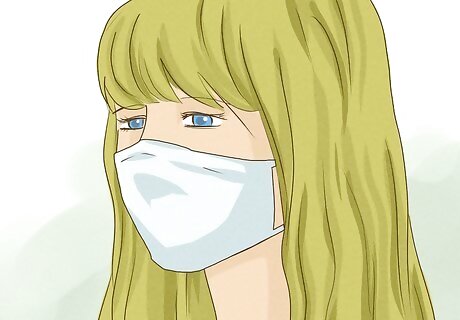
Sun and wind exposure can dry out your lips. When you're trying to heal your lips, cover them up completely when you go outside. This is especially important during the winter because cold air can dry your lips out more quickly than warm air. If a mask or scarf isn't appropriate for the outdoor conditions or for your activity, use a lip balm with sunscreen of at least SPF 30. Reapply the lip balm frequently to keep your lips protected from the sun, especially if you're swimming or playing in water.
Eat a well-balanced diet.
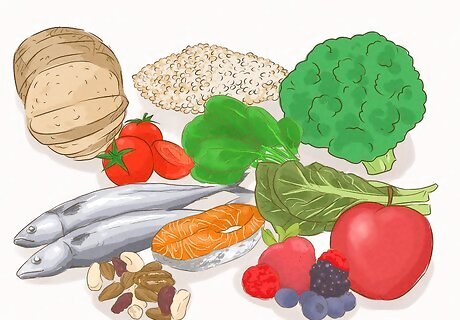
Ensure you get all your nutrients to help promote healing. Eating right can reduce inflammation and help wounds heal faster. Eat plenty of whole grains, fruits and vegetables, healthy proteins (like chicken breast, fish, beans, or nuts), and low-fat dairy. Foods like tomatoes, leafy greens, olive oil, fatty fish, and berries are good for fighting inflammation. Stay away from inflammatory foods and foods that are high in calories but low in nutrients, such as white bread, cakes and cookies, fried foods, red meat, greasy fast food, candy, and sugary sodas.
Protect your lips with a lubricating balm.
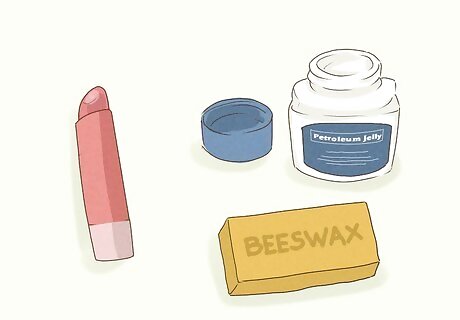
Lubricating balms seal in moisture and keep your lips safe. A lip balm with beeswax or petrolatum protects your lips from wind, weather, and dry air to prevent them from getting too dried or chapped. Keep your lip balm with you and use it regularly, especially when the weather is cold. If you're going to be outside in the sun, use a lip balm that contains sunscreen with an SPF of at least 30 and reapply it regularly.
Drink water to stay hydrated.
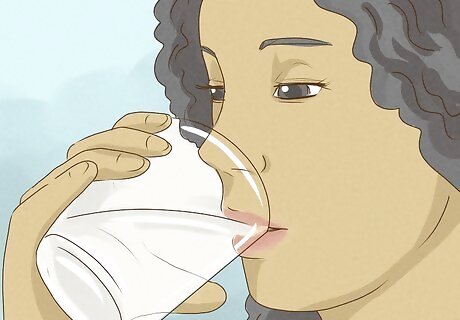
This helps your skin retain moisture to keep your lips from drying out. In general, men should consume at least 15.5 cups (3.7 liters) of water a day, while women should consume at least 11.5 cups (2.7 liters). However, you should drink more water if you're active, or in dry, cold weather. Water consumption recommendations include water that you get from other beverages and food. However, if you're drinking beverages that can dehydrate you, such as coffee or soda, drink additional water to make up for that dehydrating effect. Generally, you should drink water before you start feeling thirsty. If your urine is clear or pale yellow, that's an indication that you're drinking enough water.
Use a humidifier if your air is dry.
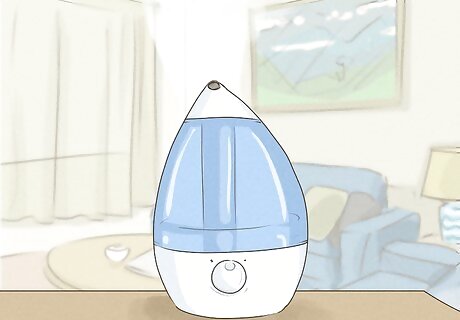
Air humidifiers restore moisture in the air to keep your skin healthy. Particularly during cold weather, the air in your home may be too dry. This can dry out your skin and cause chapped or peeling lips. Static in your hair or clothes or electrostatic shocks when you touch someone or something are signs that the air in your home is too dry. Refresh the water in your humidifier every day and clean the buckets and filter systems at least once every 2 to 3 days to keep your humidifier from growing mold and bacteria. Check your home's humidity level once every 2 or 3 days as well. While an excessively dry home can cause dry skin, chapped lips, and respiratory problems, excessively moist air can also lead to problems, including the growth of mold and mildew.
Breathe through your nose instead of your mouth.
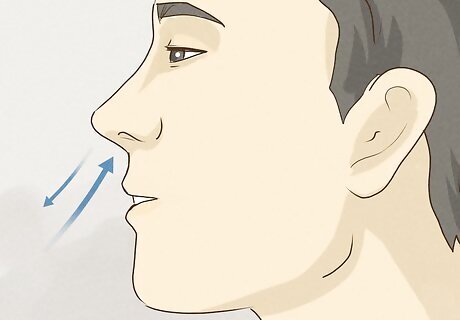
Breathing through your mouth can cause your lips to dry out. Inhaling through your mouth may be worse than exhaling through your mouth, since exhalations are moist. However, it's generally best to breathe through your nose. If your nose is stopped up, that may be an indication that the air in your home is too dry, or that you're suffering from allergies. If you remedy those problems and still have difficulty breathing through your nose, talk to your doctor.Tip: Many people sleep with their mouth open, which can cause your lips to dry out. To prevent this from happening, apply a liberal coat of lip balm just before you go to bed.
Avoid licking your lips.
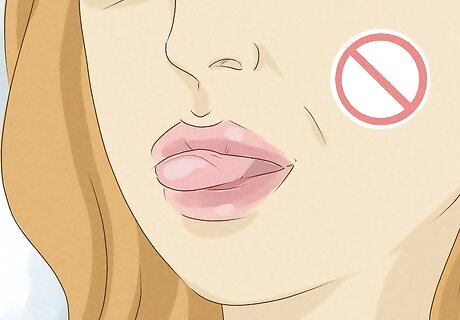
Your saliva is not meant as a moisturizer and can actually dry out your lips. Additionally, enzymes in your saliva that help break down the food you eat can irritate your lips, leading to inflammation, chapping, and discomfort. If your lips feel dry, apply a lip balm rather than licking them. That will keep your lips moist so that you don't feel the need to lick them.
Make a list of all the products you've used on your lips.
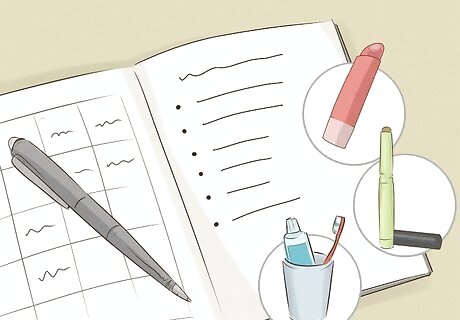
You might find a common ingredient that irritates your lips. Some products you're using on your lips, such as lip balms or lipsticks, may contain ingredients that you're allergic to or that irritate your lips. If you suspect a product is irritating your lips, stop using it for a couple of days and see if you notice any difference. Your doctor can also tell you if certain products have potentially inflammatory ingredients. Toothpaste, makeup, and other products that you use near your mouth (even if they don't necessarily get directly on your lips) can also cause the more sensitive skin of your lips to become inflamed.Tip: Some medications and nutritional supplements, including vitamin A supplements and lithium, can also cause chapped lips. If you're taking any medications or supplements, let your doctor or dermatologist know. They can tell you if one of them might be the culprit.
Give most self-care treatments 2 to 3 weeks to work.
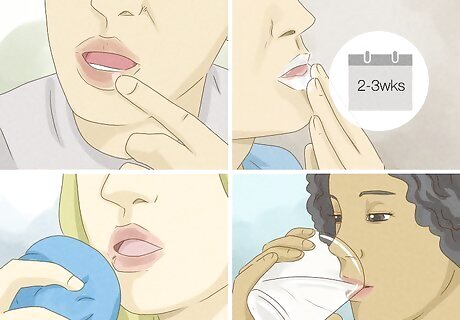
Monitor the condition of your lips to see if you feel better. Don't expect your lips to heal completely overnight, especially if you've had a long habit of biting them. Even if you maintain self-care treatment diligently, it can still take nearly a month for your lips to be completely healed. As long as your symptoms don't change or get worse, there's likely no serious issue that you need to worry about. Keep in mind that it can also take a bit of trial and error to find a product that works for you. If you see no difference in your lips after using something regularly for a couple of days, stop using that product and try something else.
Call your doctor if your lips are swollen or painful.
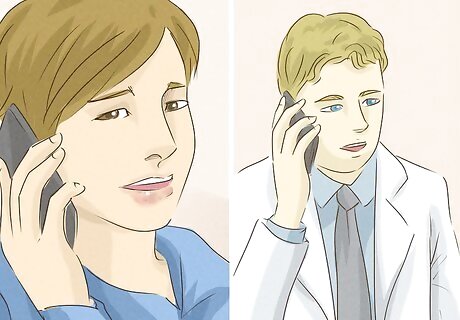
Heat, swelling, and pain are signs of infection. If your lip has become infected, you likely won't be able to treat this at home on your own. Your doctor may prescribe an antibiotic or antifungal cream to treat the problem. If they do, follow the dosage instructions for as long as your doctor tells you, even if the problem appears to go away. If you don't finish a treatment cycle, the infection could return.
Get medical treatment after 1 week without improvement.
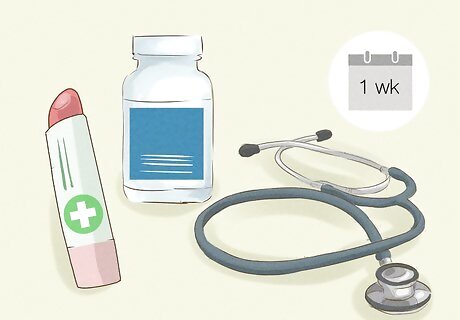
You may need a prescription to fully heal your lips. Although lips typically heal with self-care treatment, if nothing you're doing seems to be making any difference, there may be something else going on. Even if you don't have any signs of infection, if you don't start to see any improvement in the condition of your lips after 1 week, a doctor can help. Your doctor may prescribe a medicated lip balm to ease the symptoms and help your lips heal more quickly. They might also recommend other over-the-counter medications or self-help remedies that you haven't tried yet.
See a dermatologist if self-care treatments don't work.
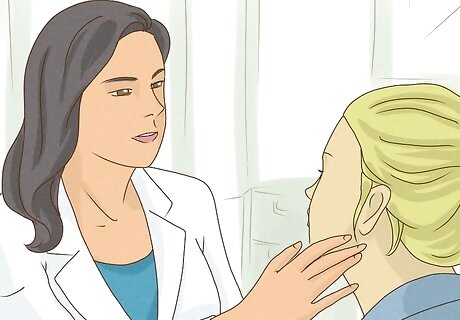
A dermatologist can find any underlying conditions causing the issue. If you've bitten your lips, you likely know the cause of their irritation. However, if self-care treatments don't do anything to help, there might be another problem that you need to treat first. While your regular doctor can typically determine the issue, they might also refer you to a dermatologist. Because dermatologists specialize in the skin, they have a better understanding of various diseases and conditions that can cause chapped lips and other skin problems. Once the cause of your dry or chapped lips has been diagnosed, the dermatologist can recommend an effective treatment.














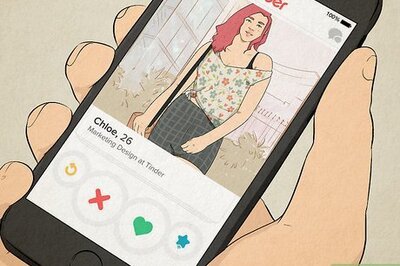


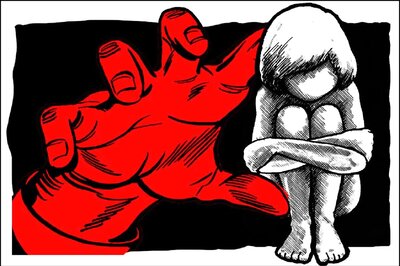

Comments
0 comment